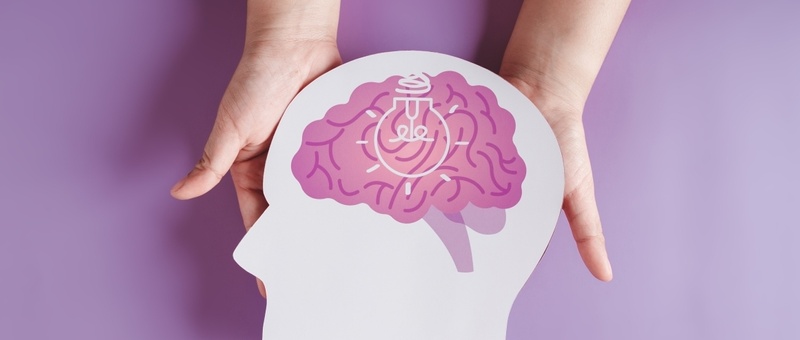
The best brain exercises to sharpen your mind
Peer reviewed by Dr Krishna Vakharia, MRCGPLast updated by Amberley DavisLast updated 1 Aug 2024
Meets Patient’s editorial guidelines
- DownloadDownload
- Share
- Language
- Discussion
- Audio Version
Exercising our brains is every bit as important as exercising our bodies. Most of us don't consider our brains as a body part that needs exercise, or even give a thought to its health until something goes wrong.
However, exercising your brain can help protect against dementia, improve your attention span, sharpen your focus and boost your chances of it performing to its full potential throughout your life.
In this article:
Video picks for Memory loss and dementia
Continue reading below
The importance of brain health
You might not know where to start when it comes to brain training. It may feel difficult to monitor your progress too, since the results won't be visual the way that they are after you frequent the gym and build muscle.
However, Michelle Reshef, founder of Dementia Prevention UK, stresses the importance of brain health by encouraging you to look at your reflection in a mirror and note what you see.
"As you move through life, you spot changes in your physical appearance. You might notice changes in your face, for example. So, your brain has also been through changes as time has passed - you just can't see them.
Just as you make an effort to preserve your outer shell - perhaps by using a cream to prevent wrinkles - you should go to the same efforts to protect your brain as it ages."
Stretching your brain
Back to contentsReshef says that maintaining a healthy lifestyle, being sociable and being aware of your mental health are important to ensure your brain is active and healthy, but you should also make sure that you stretch your brain.
The two basic ways to stretch your brain are:
Make sure your brain is stimulated.
Practise flexible thinking.
"Make sure that your brain is being stimulated frequently. Most of us keep a busy brain, doing more of the same. Routine keeps the brain healthy and busy but not stimulated. Therefore, at least once a day you should introduce something new and exciting to your brain. If something is challenging for you, or feels different, then it's helping to increase brain activity since you're adjusting to something you aren't used to."
Brain exercises for this include:
Ending your emails in a different way instead of the usual "kind regards".
Switching your lunch to a different time.
Eating lunch with people from the office you never talk to.
Using your non-dominant hand for 15 minutes of activity.
Continue reading below
Flexible thinking
Back to contents"The second important element in maintaining a healthy brain is to adopt flexible thinking. You can do this from time to time by analysing a situation from as many points as you can," suggests Reshef.
Brain exercises to do this include:
Observing artwork you usually don't like.
Watching a TV show you haven't previously shown interest in.
Listening to a different style of music.
Cooking a new, unusual recipe.
Reshef also stresses the importance of creativity, and recommends creating something new every day.
Nurturing your brain's creativity can help you become better at problem solving, more focused, and more self-aware - it can help you find clarity when your mind feels cluttered.
Other brain training exercises
Doing puzzles - these might be crosswords, word searches, sudoku puzzles or jigsaws.
Playing card games.
Drawing maps of your town from memory.
Teaching yourself a new skill.
Learning a foreign language.
Taking up a new sport.
Recalling lists - make a list of groceries and memorise it, then see if you can recall it an hour later.
Solving mental maths equations.
The importance of brain exercises
Back to contents"The ability to be flexible in your thinking is a necessary skill for dealing with life's inevitable changes. It helps you adjust more easily to new circumstances, challenges and situations as they arise. It also helps your brain to find alternative solutions to problems," says Reshef.
She adds that once you start doing a brain workout each day, you will see improvement in:
Cognitive ability.
Focus and concentration.
Meeting targets.
Teamwork ability.
Leadership skills.
High performance.
Good mental health.
"A brain that is constantly searching for new solutions and that is stimulated is a brain that develops new connections. The more connections you have in your brain, the more protected your brain is. It also becomes more capable in all aspects of life and lowers your risk of neurodegenerative diseases like dementia," says Reshef.
Continue reading below
Can physical exercise also be beneficial for the mind?
Back to contentsAs well as brain-training exercises, physical exercise can also provide psychological benefits.
You may know that physical exercise increases dopamine and decreases the production of stress-related hormones, but few know of the benefits physical activity has on overall brain health - including factors such as improved focus and better memory, both in young and older adults.
Exercising promotes new brain cells, stimulates communication between the cells, and prevents loss of brain volume as you age.
The indirect benefits of exercise are just as important for brain development and health. They include:
Reduced anxiety.
Stress.
Better sleep.
Improved mood.
It's recommended you do 20-30 minutes of daily moderate-intensity aerobic activity like jogging, swimming, or cycling for improved brain health - around 150 minutes a week.
The simplest way to incorporate this into your daily routine is to get outside in nature for a walk every day.
Patient picks for Memory loss and dementia

Brain and nerves
What not to say to someone with dementia
Living with dementia is really challenging, but it can be particularly hard when people unintentionally say the wrong thing. Here's what to avoid when talking to someone with the condition.
by Natalie Healey

Brain and nerves
What is early Alzheimer’s disease - and what causes it?
Around 70,800 people in the UK have early onset dementia - meaning they are diagnosed before the age of 65. Alzheimer's disease, the most common cause of dementia, accounts for around one third of these cases. Here we look at what we know about Alzheimer's - its causes and symptoms.
by Lydia Smith
Continue reading below
Article history
The information on this page is peer reviewed by qualified clinicians.
Next review due: 31 Jul 2027
1 Aug 2024 | Latest version
31 Jul 2022 | Originally published
Authored by:
Emily Jane Bashforth

Ask, share, connect.
Browse discussions, ask questions, and share experiences across hundreds of health topics.

Feeling unwell?
Assess your symptoms online for free
Sign up to the Patient newsletter
Your weekly dose of clear, trustworthy health advice - written to help you feel informed, confident and in control.
By subscribing you accept our Privacy Policy. You can unsubscribe at any time. We never sell your data.